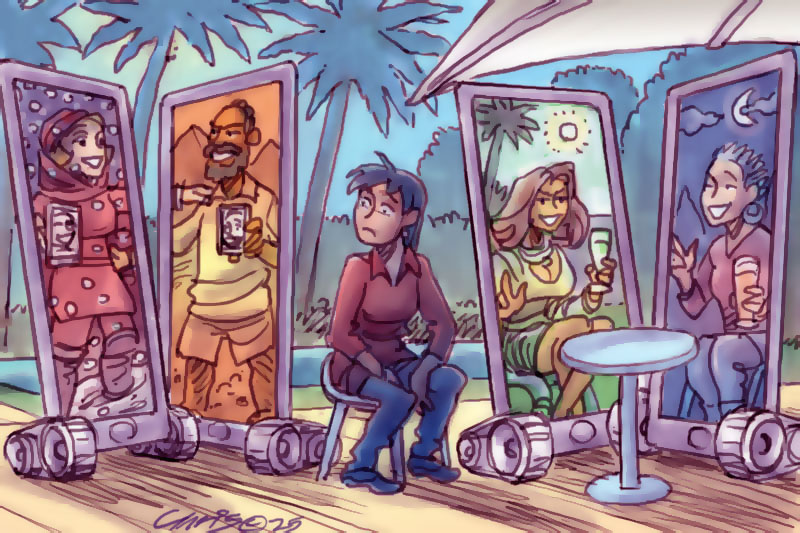Keywords: Cashless Society
-

AUSTRALIA
- Mark Gaetani
- 26 February 2025
As cash fades from everyday transactions, its decline underscores a growing divide in access. With digital payments dominating and cash use dropping sharply, questions loom over the future of currency in an increasingly cashless society, and who might be left behind.
READ MORE
-

AUSTRALIA
- Binoy Kampmark
- 04 February 2025
Smartphones dictate access to commerce, communication, and even education, and face-to-face transactions have all but disappeared. Have we willingly surrendered choice for convenience? As digital payments become the norm, are those choosing to live without a smartphone excluded from modern society?
READ MORE
-

AUSTRALIA
Dr. Eve Vincent's book, 'Who Cares? Life on Welfare in Australia', provides an in-depth exploration of the intricate dance between power, control, and social policy, unearthing unsettling truths about our society's inherent power structures. This discourse further underscores the urgent need for a radical reimagining of our socio-economic systems.
READ MORE
-

AUSTRALIA
- Frank Hurley
- 24 February 2022
1 Comment
Gambling is now a core national industry providing significant employment, profit for private providers and revenue for governments. All good but, as with every form of industry, there are ‘externalities’. In the case of the gambling industry, it is the personal and social costs of ‘problem’ or ‘addicted’ gamblers that must be taken into account.
READ MORE 
-

ECONOMICS
Our economy is 1.1 per cent larger than a year ago. Yet, as the situation in Victoria reminded us, none of us are safe unless all of us are safe. And we cannot be safe while work remains increasingly insecure, while social security payments are inadequate and while our public infrastructure is found wanting.
READ MORE 
-

AUSTRALIA
Ideology is a powerful presence in our lives. It works its way into our consciousness through the dominant discourses of government, media, institutional religion, legal frameworks, popular culture, advertising, all the means at the disposal of the powerful. Once we learn to recognise it we see it everywhere. If it feels like we were born into it, it is because we were.
READ MORE 